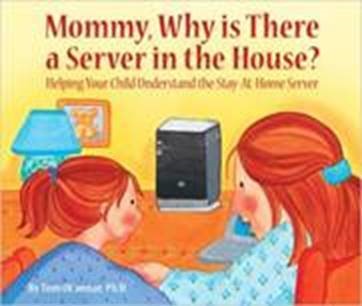Windows Home Server 2011 End of Mainstream Support
Windows Home Server 2011 mainstream support ended in the second quarter of 2016. You can see all of the support lifecycle dates on the Microsoft Lifecycle page here.
What does this mean for you?
This means that Microsoft will no longer issue security updates for the Home Server-specific components that make up Windows Home Server 2011. If you are still running Windows Home Server 2008 or Windows Home Server 2011, Microsoft recommends bringing in a new device running Windows Server Standard or Windows Server Essentials and migrating your roles, features and data to the new appliance. Today’s new hardware is significantly faster and cheaper and can better handle the latest Windows security infrastructure, roles and features. Customers moving to a modern operating system will benefit from dramatically enhanced security, broad device support, higher user productivity, and a lower total cost of ownership through improved management capabilities.
Why migrate from Windows Home Server to Windows Server Essentials?
The latest versions of Windows Server Essentials support improvements in security, scalability, and manageability, and it contains device driver support for new hardware and silicon.
• Simplified setup. There is no easier way to set up a server than using the Windows Server Essentials Out-of-Box experience. Windows Server Essentials configures AD, certificate services, and DNS. It helps get a public domain name set up, and it generates and installs SSL certificates and everything you need to get started with your own hybrid cloud setup.
• Data redundancy and single pool of storage. Windows Server Essentials includes a feature called Storage Spaces that provides data redundancy and storage pooling functionality like that provided by Drive Extender in WHS. Windows Server Essentials has a much more reliable and resilient storage subsystem.
• Centralized PC backup and restore. Windows Server Essentials includes the next generation version of the centralized PC backup and restore functionality from Windows Home Server 2011 as well as centralized File History storage for all your PCs. Windows Server Essentials supports up to 75 PC backups vs. Windows Home Server’s 25 PC backup limitation. Windows Server Essentials 2016 also supports backing up volumes to Azure and backing up VMs to Azure Site Recovery (ASR).
• Centralized PC and server health monitoring. Windows Server Essentials includes health monitoring, both for the server itself as well as for all the connected PCs.
• Document and media sharing. Windows Server Essentials can share content using SMB, iSCSI or NFS. Windows Server Essentials 2016 no longer includes the media streaming codecs, however, we found that people were not actually using that feature and they prefer to decode in the respective media applications.
• Remote access. Windows Server Essentials has the remote access gateway feature that automatically generates SSL certificates for your server from GoDaddy. Essentials includes a web-based client for accessing home documents and media, and you can also remote desktop into the server if needed for administration purposes.
The Home Server line of products had a very enthusiastic fan following -- it introduced the concept of a server in the house to the world and books appeared to make sense of it all.
Microsoft learned quite a bit helping and supporting hundreds of thousands of home users and small businesses to deploy Windows Server. If you are looking to upgrade your old Windows Home Server, now is a great opportunity to look at the new devices available and move to a modern platform.
For more information about Windows Server Essentials see the documentation site and it can be purchased at the Microsoft store.
Cheers,
Scott M. Johnson
Senior Program Manager
Windows Server Essentials
